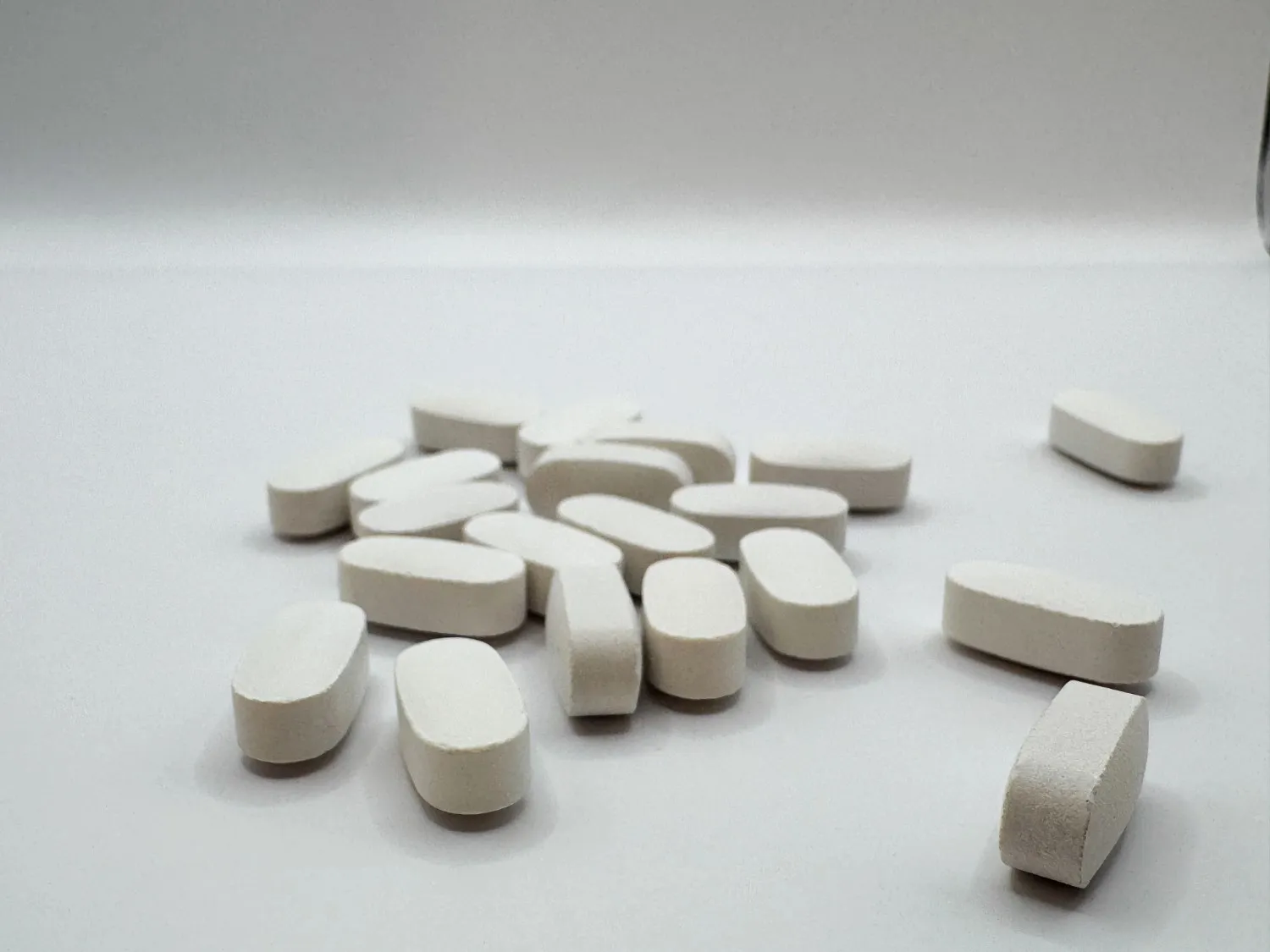Table of Contents
- Can You Take Berberine and Magnesium Together?
- What is Berberine?
- What is Magnesium?
- Potential Benefits of Combining Berberine and Magnesium
- Timing and Absorption Considerations
- Possible Risks and Side Effects
- Best Practices for Taking Berberine and Magnesium Together
- Who Should Be Cautious?
- Conclusion
- FAQs
Berberine and magnesium are two popular supplements for metabolic health, energy, and hormone balance.
Many people wonder: can you take berberine and magnesium together?
The short answer is yes, in most cases, they can be taken together safely, and they may even complement each other’s effects.
Can You Take Berberine and Magnesium Together?
Yes, berberine and magnesium can generally be taken together, and for many people, they may provide synergistic benefits. Both support healthy blood sugar control, energy production, and hormone balance, making them a useful pair for overall metabolic wellness.
That said, timing and personal health conditions matter. Magnesium can interfere with the absorption of some medications, and berberine interacts with certain drugs for blood sugar or cholesterol.
To stay safe, it is best to take them a couple of hours apart and talk with a healthcare provider if you are on prescription medication.
What is Berberine?
 Berberine is a natural compound found in plants such as barberry, goldenseal, and Oregon grape. Traditionally used in Chinese and Ayurvedic medicine, it has gained attention for its role in supporting blood sugar, digestion, and cardiovascular health (1).
Berberine is a natural compound found in plants such as barberry, goldenseal, and Oregon grape. Traditionally used in Chinese and Ayurvedic medicine, it has gained attention for its role in supporting blood sugar, digestion, and cardiovascular health (1).
It works by activating an enzyme called AMPK, often described as the body’s “metabolic switch.” This enzyme helps regulate how the body uses energy, improves insulin sensitivity, and supports fat metabolism.
Because of this, many people use berberine as a natural way to promote healthy weight and balanced blood sugar.
Berberine supplements usually come in doses of 250–500 mg, taken two or three times per day with meals for better absorption.
Potential Health Benefits of Berberine
Berberine may support multiple areas of health:
Blood sugar control: Helps reduce glucose production in the liver and improves insulin sensitivity (2).
Weight management: Supports metabolism and fat breakdown, which may reduce weight gain (3).
Cholesterol and heart health: Shown to lower LDL cholesterol and triglycerides while improving HDL (4).
Gut health: It has natural antibacterial effects and can help balance the gut microbiome (5).
Anti-inflammatory effects: May reduce chronic inflammation linked to metabolic and hormonal issues (6).
What is Magnesium?
 Magnesium is an essential mineral that plays a role in more than 300 enzyme reactions in the body. It is required for muscle function, nerve signaling, heart rhythm, and bone strength. Despite its importance, many people do not get enough magnesium from food alone.
Magnesium is an essential mineral that plays a role in more than 300 enzyme reactions in the body. It is required for muscle function, nerve signaling, heart rhythm, and bone strength. Despite its importance, many people do not get enough magnesium from food alone.
It is found naturally in leafy greens, nuts, seeds, whole grains, and fish.
As a supplement, magnesium comes in different forms, such as magnesium glycinate (good for sleep and relaxation), magnesium citrate (often used for digestion), and magnesium oxide (higher elemental magnesium, less absorbable).
Magnesium deficiencies are fairly common and can lead to muscle cramps, fatigue, poor sleep, and increased risk of heart problems (7).
Supplementing can help restore balance and support overall wellness.
Potential Health Benefits of Magnesium
Magnesium has wide-ranging benefits backed by research:
Improved insulin sensitivity: Supports how cells respond to insulin and helps move glucose into cells (8).
Better sleep and relaxation: Magnesium glycinate and citrate are often used to calm the nervous system and improve sleep quality (9).
Bone health: Works alongside calcium and vitamin D to keep bones strong (10).
Heart health: Helps regulate blood pressure and maintain a steady heartbeat (11).
- Reduced stress: Plays a role in lowering cortisol and supporting a balanced mood (12).
Potential Benefits of Combining Berberine and Magnesium
 Taking berberine and magnesium together may provide complementary benefits, especially for blood sugar, hormones, and metabolic health. Here’s how they may work in tandem:
Taking berberine and magnesium together may provide complementary benefits, especially for blood sugar, hormones, and metabolic health. Here’s how they may work in tandem:
Blood Sugar Regulation
Both berberine and magnesium help improve how the body handles glucose. Berberine activates AMPK, reducing glucose production in the liver and improving insulin sensitivity.
Magnesium supports insulin’s action, allowing sugar to move into cells more effectively.
Together, they may help keep blood sugar steady, which is particularly helpful for those managing prediabetes or type 2 diabetes.
Hormone Balance
Magnesium plays a key role in regulating cortisol and supporting thyroid function, while berberine helps lower inflammation that can disrupt hormone balance.
This combination may support women dealing with PMS, PCOS, or perimenopausal symptoms, and can also promote overall hormonal stability for men.
Better Sleep and Stress Support
Magnesium glycinate is often taken at night for relaxation and sleep. By reducing cortisol and calming the nervous system, it helps improve rest quality.
While berberine is not a sedative, its role in balancing blood sugar and metabolism may reduce nighttime blood sugar spikes, indirectly improving sleep quality.
Weight Management
Berberine supports metabolism and fat utilization, while magnesium helps regulate insulin and prevent excess fat storage.
The combination may support healthy weight loss efforts when paired with diet and exercise.
Heart and Metabolic Health
Magnesium supports normal heart rhythm and blood pressure, while berberine helps lower LDL cholesterol and triglycerides.
Together, they can be valuable for long-term cardiovascular health.
Timing and Absorption Considerations
Magnesium and berberine can be taken together, but for best absorption and minimal interference, many experts recommend spacing them out by 1–2 hours. This reduces the risk of one affecting the absorption of the other or interacting with medications.
Berberine is best absorbed when taken with meals, since food helps improve its uptake and reduces the chance of stomach upset.
Magnesium, especially glycinate or citrate, can be taken with or without food, though many prefer to take it in the evening for its calming effects.
If you are taking prescription medications, pay extra attention to timing.
Magnesium can interfere with the absorption of antibiotics, thyroid medications, and certain blood pressure drugs.
Berberine interacts with drugs like metformin, statins, and antidepressants. To stay safe, take medications at least 2 hours apart from either supplement.
Possible Risks and Side Effects
While generally safe, both berberine and magnesium can cause side effects, especially at higher doses or in sensitive individuals.
Berberine Side Effects
Digestive discomfort, such as nausea, diarrhea, constipation, or cramping, is the most common issue.
May lower blood sugar too much when combined with diabetes medications, increasing the risk of hypoglycemia.
Can interact with prescription drugs processed by the liver, including statins, antidepressants, and certain antibiotics.
Not recommended during pregnancy or breastfeeding, since safety data is limited.
Magnesium Side Effects
High doses can cause loose stools, diarrhea, or abdominal discomfort, especially with magnesium citrate or oxide.
People with kidney disease should avoid excess magnesium, as their bodies may struggle to clear it.
Can interfere with certain medications, such as antibiotics, thyroid hormone, and diuretics, if taken too closely together.
Best Practices for Taking Berberine and Magnesium Together
-v1755903377437.webp) If you’re planning to combine berberine and magnesium, a few simple steps can help you get the most out of both supplements:
If you’re planning to combine berberine and magnesium, a few simple steps can help you get the most out of both supplements:
Take berberine with meals to improve absorption and reduce stomach upset.
Take magnesium in the evening, especially glycinate, if you want support for sleep and relaxation.
Space them 1–2 hours apart to avoid absorption issues.
Stick to recommended dosages unless your doctor suggests otherwise.
Choose third-party tested supplements to make sure you’re getting quality and purity.
Who Should Be Cautious?
While many people can safely take both, some groups should be careful or seek medical guidance first:
People with type 2 diabetes who are on blood sugar–lowering medications.
Those taking statins, antidepressants, or antibiotics.
People with kidney or liver disease.
Pregnant or breastfeeding women.
Anyone who already takes multiple supplements or prescription medications.
Conclusion
Berberine and magnesium can be safely taken together for most healthy adults, and they may even provide complementary benefits for blood sugar control, hormone balance, sleep, and heart health.
The key is to pay attention to timing, dosage, and possible medication interactions.
As with any supplement routine, it’s smart to check with your healthcare provider to see what works best for your personal needs.
FAQs
Can you take berberine and magnesium at the same time of day?
Yes, but it’s often better to space them out by 1–2 hours for optimal absorption. Many people take berberine with meals and magnesium in the evening.
Does magnesium improve berberine absorption?
No, magnesium doesn’t directly improve berberine absorption. However, it complements berberine’s effects on blood sugar and metabolism when taken as part of a routine.
Is it better to take magnesium in the morning or at night?
Both are fine, but many people prefer magnesium at night since it promotes relaxation and better sleep. Morning doses may be more helpful if you take it for energy and muscle function.
Who should not take berberine?
Pregnant or breastfeeding women, children, and people on medications for diabetes, cholesterol, or blood pressure should avoid berberine unless cleared by a doctor.
What’s the best form of magnesium to take with berberine?
Magnesium glycinate is well-absorbed and gentle on the stomach, making it a good choice if you’re taking it alongside berberine. Magnesium citrate is also common but may cause loose stools in some people.



